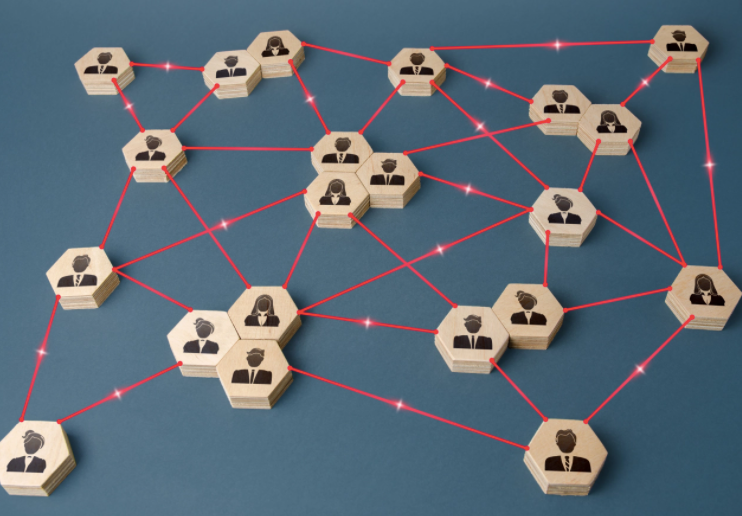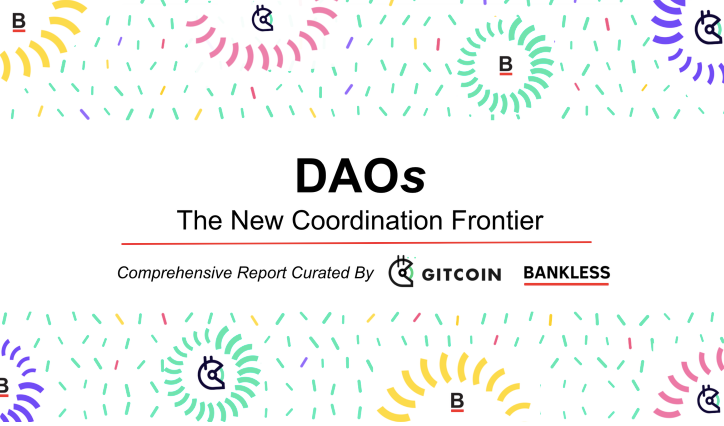WTF are DAOs?

DAO stands for Decentralized Autonomous Organization and these are a new kind of entity made possible by the use of smart contracts. Self-executing smart contracts make it possible for a large decentralized group of people to work together towards shared values and goals without needing any centralized intermediary. This is because they can create a kind of internet-native constitution that defines fundamental rules, principles, and determines organizational governance procedures. They can also autonomously execute actions based on those guidelines, thus eliminating the need for a trusted facilitator.
In practice, this decentralization makes DAOs particularly well-suited to funding and managing projects on the internet. So far, people have created DAOs that fund and manage projects like stablecoins, venture capital funds, decentralized cryptocurrency exchanges (AKA a Dex), and meme-buying collectives. Recently a DAO was even formed in an effort to buy a copy of the US Constitution. These projects allow strangers on the internet to come together and work towards common goals with incredible speed and efficiency.
A DAO uses blockchains and smart contracts to organize the mechanics of corporate governance, thereby facilitating collective participation of distributed participants in the funding and production of community goods. There are now several prominent DAOs in the Ethereum community, and recent legal moves in places like Wyoming have begun establishing bridges between traditional legal structures and these new on-chain entities.
In an effort to illuminate how DAOs function it might be helpful to reflect a bit on the community from which The Well emerged. Long before the Well incorporated or applied for a 501C3 tax-exemption, there were a group of men living together in a house on Lake Avenue that they called the Lake House. This group of guys committed to living together and working to embody certain values that they fleshed out in their own ‘Declaration of Interdependence’ which functioned as a kind of constitution for this intentional Christian community. At the time they had no interest in registering anything with the state as they were really just aiming to be good brothers to one another, good neighbors to those around them, and to walk with and learn from the poor in Tampa. They each contributed monthly in the form of dues. While some of their shared expenses were obvious things like rent, and utilities, there was a remainder of funds that could be allocated by the collective for things like groceries, projects, or services for neighbors like helping fix a leaky roof or throwing a block party to connect with people. These funds would be one of many standing agenda items for the meetings that they held every Sunday evening to discuss spending, chores, relational updates, etc. While this intentional community predated the technologies that are making DAOs possible today, they were very much working to embody the same kinds of shared ownership and participatory democracy that is so appealing about DAOs. There was no need for smart contracts when they all lived in the same house or neighborhood but if this experiment were ever going to scale it would absolutely need such technological tools as we are now seeing emerge today. Another advantage of a DAO, made possible by smart contracts over the proto-DAO intentional community is that the contract itself can hold and manage funds that can only be deployed as the appropriate votes are registered whereas, back in the day, the Lake House guys had to just trust that Will would do what he was supposed to with the shared resources entrusted to him.
As internet-native constitutions, DAOs have several advantages compared to their traditional counterparts. By nature of being decentralized and relying on blockchain networks, they are better suited to grassroots organization. They also create more transparency, and they’re open to anyone to participate from anywhere around the world. The ultimate goal of DAOs is creating organizations where all participating members have a say.
The possible use cases and the potential of DAOs is as broad and endless as human imagination and initiative. There is a very strong possibility that forming a #WellBuiltCity DAO is the best way for us to invite everyone to invest, take ownership, have real stake in the work, and build the city into what we know it can and will be. Join our discord as this is likely the place such a conversation will evolve as we move forward.
For more on DAOs, check out this DAO Report from Bankless & GitCoin

